
What’s Ahead for India and Latin America?
There’s room for growth in Indian investment in the region, says a specialist.
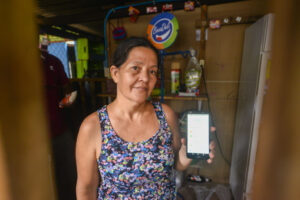
Is Crypto the Path to Financial Inclusion in Latin America?
An overview of how cryptocurrencies are gaining popularity among migrants and others, despite concerns over their stability.
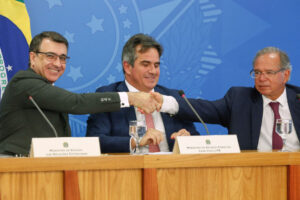
OECD: Still a Long Road Ahead for Argentina, Brazil and Peru
Economists weigh in on what membership in the “club of rich nations” could mean for their countries.
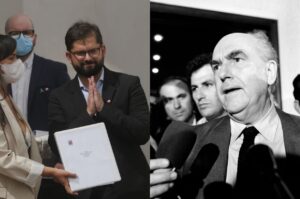
What’s in Store for Gabriel Boric? Consider 1980s Greece.
An unexpected parallel carries a warning for Chile’s incoming president.
Inside the dramatic turnaround that made Colombia’s second city a model for water management.
MEDELLÍN— For much of the 20th century, the Medellín River was an open sewer, collecting the untreated human and industrial waste of the Aburrá Valley. Stretching through the valley’s center, Medellín — a fast-growing city with a reputation for entrepreneurship— turned its collective back and closed its collective nose. Warehouses and rail tracks buffered the city from the rank … Read more

Disrupt Latin America
Microfinance revolutionized the financial services sector in Latin America over 40 years ago. Millions of individuals who were excluded from traditional financial institutions obtained access to a variety of financial products and services for the first time. Inevitably, there were gaps in coverage. In recent years, various players have been looking beyond microfinance to find … Read more

Argentina’s Debt: A Conflict of Principles
The reverberations of Argentina’s loss in NML Capital Ltd. vs. Republic of Argentina continue. The conflict stems from a 2012 decision by United States District Court for the Southern District of New York (SDNY) Judge Thomas Griesa in a case brought by the hedge fund NML Capital Ltd. and others (NML), over $1.3 billion of … Read more
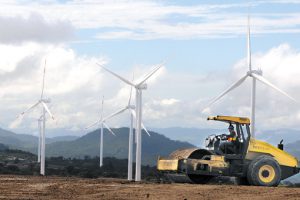
Mexico’s Foreign Policy Agenda in Central America
In the past decade, Mexico has made strengthening ties with Latin America a top priority, reorienting its gaze from north to south. This is the product of two factors: criticism that Mexico was ignoring its southern neighbors, and strategic concern over Brazil’s assertion of leadership in the region. Starting in the 1990s with the implementation … Read more
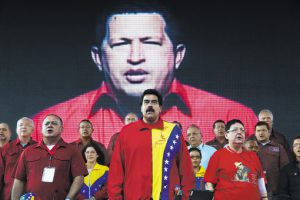
Venezuela’s Post-Chávez Foreign Policy
President Nicolás Maduro inherited a dramatically changed country—and economic situation—when he came to power following Chávez’ death from cancer in 2013. Within a year of Maduro’s election in March 2013, oil prices had started a steady decline. And as investment in the industry also dropped, production fell to 2.62 million barrels per day (bpd) from … Read more
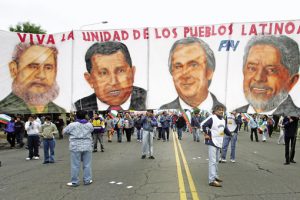
Cuba and the Summits of the Americas
In the coming months, the United States is going to face a tough choice: either alter its policy toward Cuba or face the virtual collapse of its diplomacy in Latin America. The upcoming Summit of the Americas, the seventh meeting of democratically elected heads of state throughout the Americas, due to convene in April 2015 … Read more
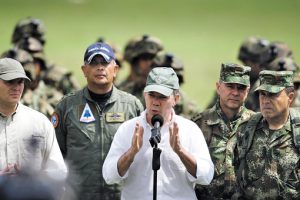
A Skeptic’s View on the “Peace Dividend”
On July 20, 2010, President Juan Manuel Santos promised the 9 million voters who had just elected him to his first term that he would build on the foundation created “by a giant, our President Álvaro Uribe.”1 He declared that Colombia could now look to the future with hope, thanks to the multiple successes that … Read more
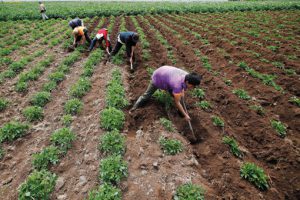
Post-Conflict Campesinos: Recovering Rural Colombia
Armed conflict and the presence of non-state armed actors harm both agricultural production and rural households’ well-being, for at least two broad reasons. First, conflict disrupts economic activities by hampering access to critical inputs and markets. As a result, producers may reduce or curtail planting or harvesting. Second, rural producers face an unpredictable environment for … Read more

Double Trouble: Currency Unification in Cuba
After nearly 20 years, the dual currency system enacted by Cuba to help mitigate the economic shock from the collapse of the Soviet Union is set to be retired. As part of the government’s efforts to develop the country’s socialist economy, the Cuban government recently announced that it would unify its complicated currency system. In … Read more
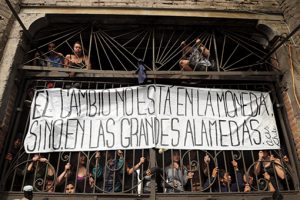
Protest U.
Millions of students have taken to the streets across Latin America in recent years in protests that reflect an unprecedentedly broad mobilization of popular opinion. Following massive demonstrations led by secondary school students in 2006 in Chile, university students launched a series of protests in May 2011. Powered by a coalition of public and private … Read more
Indigenous Enrollment
Since its formation in February 1971, the Consejo Regional Indígena del Cauca (Regional Indigenous Council of Cauca—CRIC) has made the education of young Indigenous Colombians one of its most important goals. The dream of creating an autonomous university for Indigenous youth was finally realized in November 2003—when the CRIC’s high council formally created the Universidad … Read more


